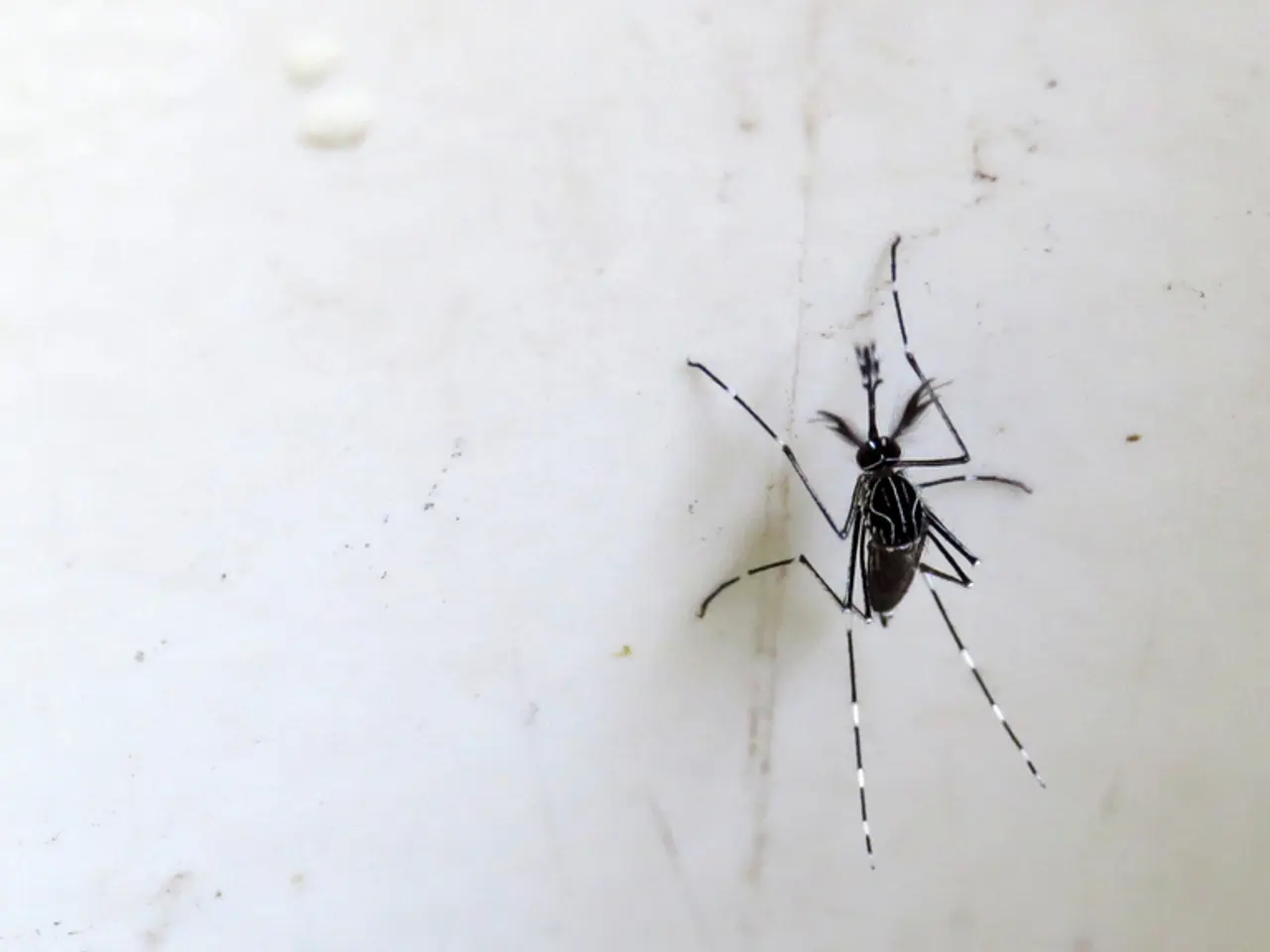Tulsa Warns: West Nile Virus Detected in Mosquitoes
Tulsa residents are urged to stay vigilant against mosquito-borne illnesses, as the city's health department has confirmed the presence of West Nile virus (WNV) in the area. The Tulsa Health Department (THD) operates a mosquito surveillance program to ensure the safety of the community.
The THD has detected WNV in a sample of mosquitoes from a trap in Tulsa County. This finding highlights the importance of the department's mosquito surveillance program, which involves setting traps weekly in various locations throughout the county. Samples are then tested weekly for mosquito-borne illnesses. The months of July through October are typically the highest risk months for exposure to WNV in Oklahoma.
To protect against mosquito bites and reduce the risk of WNV, the THD recommends several precautions. These include dumping standing water, using insect repellent, wearing long sleeves and pants, and repairing or installing window and door screens. Community members are also encouraged to report standing or stagnant water in their area by calling the THD or submitting an online environmental complaint form. The THD uses larviciding and spraying as control methods when necessary to prevent the spread of mosquito-borne illnesses.
While there have been no confirmed cases of WNV in humans in Tulsa County this year, the recent detection of the virus in mosquitoes serves as a reminder of the importance of mosquito surveillance and prevention efforts. The THD provides an interactive data page that includes a map of WNV positive trap locations in Tulsa County, updated weekly during the mosquito surveillance season. For more information, visit the THD website or contact them directly.
Read also:
- Abu Dhabi initiative for comprehensive genetic screening, aiming to diagnose over 800 conditions and enhance the health of future generations in the UAE.
- Elderly shingles: Recognizing symptoms, potential problems, and available treatments
- Exploring the Reasons, Purposes, and Enigmas of Hiccups: Delving into Their Origins, Roles, and Unsolved Aspects
- Various forms of cataracts include nuclear, pediatric, traumatic, and additional types







